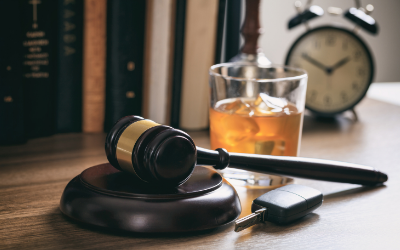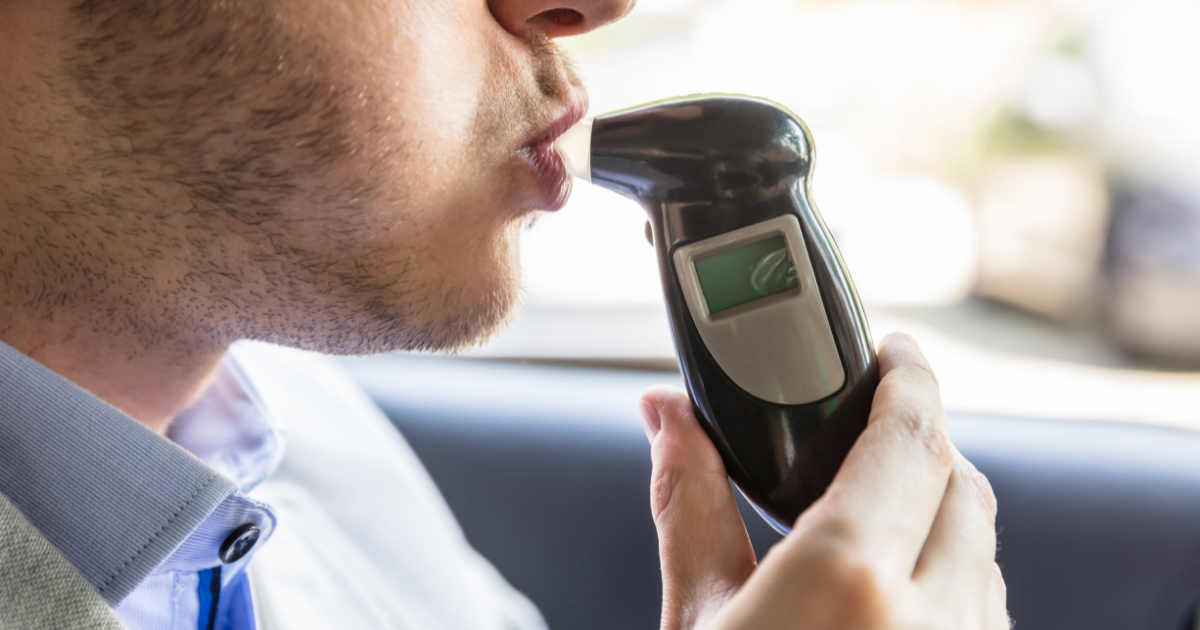Savannah DUI Lawyers
Drunk driving is one of the most common causes of serious and fatal car accidents. Even a small amount of alcohol can have an impact on a motorist’s coordination, reflexes, and ability to make smart, responsible choices. According to national statistics, each day, an average of over 2,300 people are arrested for drunk driving in the United States. Driving under the influence (DUI) is a serious charge with serious consequences. In Georgia, if a motorist is arrested for DUI, he or she will likely face harsh penalties, including steep fines, license suspension, probation, and possible jail time. This can also have a serious impact on a person’s ability to seek employment, obtain a mortgage, or secure financial aid for college. Although a DUI charge is serious, there are a range of defense strategies that may result in a lesser charge, or the charges being dropped entirely. An experienced DUI lawyer will identify any weaknesses in the prosecution’s case, determine whether mistakes were made by the arresting officer, and present evidence that will establish reasonable doubt that the defendant committed a DUI.
Although a DUI charge is a serious offense in all states, Georgia is ranked as the number two most punitive state for DUI charges, second only to Arizona. Even first-time offenders may face jail time and a lengthy probation period. In addition, if a motorist is convicted of a DUI, there are no DUI expungements, DUI diversions, or leniency for first-time offenders or youth offenders. The offender also faces dramatic increases in penalties for every repeat DUI offense.
What are the Different Types of DUI Consequences in Georgia?
In the state of Georgia, DUI consequences result from two different court hearings, including an administrative license hearing and a criminal proceeding. Both can have an impact on the motorist’s driver’s license. However, the outcome of a criminal hearing can determine whether additional punishments are warranted, including jail time, community service, additional license suspension, fines, and alcohol treatment programs.

Administration license hearing: Anytime a driver has been arrested for DUI, there will likely be an administrative suspension of his or her Georgia driver’s license. This is initiated by the Department of Driver Services and can impact the motorist’s ability to drive, even if he or she has not yet been convicted of the DUI charge. If a motorist’s blood alcohol concentration (BAC) was 0.08 percent or higher, or the motorist refuses to take the state-administered test, his or her license may be suspended for 12 months, starting 30 days after the arrest. The motorist may file an appeal within this 30-day period to prevent the license suspension. The motorist will be notified as to when and where the Administrative License Suspension Hearing will be held. In most cases, the hearing is held in a different court than the criminal DUI case. The hearing addresses the following questions:
Criminal proceeding: A DUI charge is considered a misdemeanor criminal offense, which means that the person charged has a right to a jury trial. Oftentimes, these cases are resolved through plea bargaining. However, if an acceptable plea cannot be reached, the case will proceed to trial. A DUI lawyer will file a pretrial motion, which often includes a motion to suppress the DUI arrest or the results from the breathalyzer test. Some of the more commonly occurring motions in DUI cases include those that the DUI case be dismissed based on lack of probable cause to arrest, or that there was no legal reason for the DUI stop to occur.
Proceeding to trial will require a great deal of careful preparation and strategic planning. The defendant and their DUI lawyer will discuss the key issues of the case and determine whether the defendant will testify. The benefit of testifying is that the defendant has the opportunity to tell their side of the story and offer important details that could be beneficial to their case. However, the prosecutor can ask questions or bring up details of the arrest that could poke holes in the defendant’s story and ultimately hurt the case. A skilled and experienced DUI lawyer will be able to anticipate the questions that the prosecution will likely ask and ensure that the defendant is prepared for difficult cross-examination questions.
Determining what evidence to present at trial is another important decision that will need to be made by the defendant and his or her legal team. Evidence may include photographs from the accident scene, medical reports, or witness testimonies. For example, if the defendant was unsteady during the field test because of a knee injury, medical records can be subpoenaed by the court. When it comes to witness testimonies, there are two types of witnesses that may provide testimony on the defendant’s behalf. The first type includes friends, coworkers, or family members that were present when the defendant was stopped. Oftentimes, it is up to the jurors to decide how credible these witnesses are, based on their testimony and their relationship to the defendant. The second type of witness that may be called to testify is an expert witness. In DUI cases, expert witnesses are often police officers who can discredit the arresting officer’s application of the field test, or a doctor or toxicologist who can explain blood tests and breathalyzer results.

Once a trial date has been set and the jury has been selected, opening statements will begin. Both sides have an opportunity to present their case, call witnesses, cross-examine, and make convincing closing arguments. The jury will deliberate and come up with a verdict, which will be read by the judge to the court. If the defendant is found guilty, he or she will be sentenced. The exact punishment will depend on the details of the case and the seriousness of the charges.
What Penalties Will I Face If I Am Charged With a DUI?
In Georgia, any motorist can be charged with a DUI for operating a motor vehicle while under the influence of drugs or alcohol, with an elevated BAC, or with any amount of illegal drugs in his or her system. The following are examples of penalties for DUI convictions in Georgia:
Georgia also has very strict driver’s license penalties for motorists who have been charged with a DUI, including the following:
Motorists who complete a DUI education program and complete the minimum suspension served may be eligible for early reinstatement. In addition, a suspended driver may qualify for a hardship license, which will allow the motorist to drive only for specific purposes and during certain hours of the day. In addition, he or she must use an ignition interlock device.
Although most DUI charges are misdemeanor offenses, the following factors may qualify a DUI as a felony and will involve much more severe penalties:
What are Examples of Effective DUI Defense Strategies?
There are a wide range of effective defense strategies that a skilled DUI lawyer will use to protect a client’s legal rights. In fact, there are over 50 ways to challenge evidence from breath test machines. Even if the motorist had been drinking and his or her BAC was over the legal limit, the prosecution must be able to prove beyond a reasonable doubt that the defendant is guilty of the DUI crime. The following are some of the most common defense strategies that a DUI lawyer will use to find weaknesses in the prosecution’s case and establish reasonable doubt:
Failure to follow procedure: If the appropriate procedures were not followed during the DUI arrest, the defendant’s DUI lawyer can argue to have the case dismissed, or that key state evidence be excluded. In addition, if evidence such as blood, urine, or breath samples, police videos, or photos from the scene is not handled properly, the defendant’s legal team can argue that the evidence be excluded.
Failure to meet the burden of proof: The prosecution has the responsibility to prove, beyond a reasonable doubt, that the defendant is guilty of a DUI charge. If the prosecution does not have enough solid evidence to make a strong case, or the defense is able to present compelling evidence that contradicts the prosecution’s claims, this can create a reasonable doubt.
Lack of probable cause: In order for police to stop a vehicle, probable cause must exist. If an officer suspects that a motorist is intoxicated, he or she must have a valid reason for stopping the driver. For example, if the driver was weaving in and out of lanes, speeding, or driving too slowly, the police officer has every right to stop the driver. However, a police officer may not stop a driver simply because he or she believes the driver has been drinking. One of the most effective defenses to DUI in Georgia is arguing that the officer’s observations did not show impairment.
Challenging the field sobriety test: Many successful DUI defenses are based on evidence that the field sobriety test was not administered correctly. Although it can be stressful to be given a field sobriety test, it is important to understand that officers make mistakes when administering the test. If the defense can successfully challenge the results of the test, the judge may rule that the results are inadmissible and cannot be used as evidence in the trial. This can weaken the prosecution’s case.
Challenging the field sobriety testing conditions: A sobriety test often involves the Walk and Turn and One Leg Stand test. Ideally, the test requires a dry, level surface that is not slippery, and where there is plenty of room to complete the test. However, if the test is done in an area that is poorly lit, and the ground is wet, slippery, or not level, this test can be difficult, even if the person is completely sober.
Challenging the implied consent notice: If a motorist is arrested for a DUI, they must submit to chemical testing of their breath, blood, or urine to confirm the presence of drugs or alcohol. Police officers must request the test by reading the Georgia Implied Consent Notice at the time of the arrest. If the proper protocol is not followed or the police officer misleads the motorist in any way, the test results may be inadmissible in court. This can have a significant impact on the case, including a reduced charge of reckless driving.
Savannah DUI Attorneys at Kicklighter Law Represent Motorists Who Have Been Charged With a DUI
If you or someone you know has been charged with a DUI, it is in your best interest to contact our DUI lawyers in Savannah as soon as possible. These are serious charges that require a skilled and experienced legal team who can protect your rights and negotiate the best possible outcome, whether that means a reduced sentence or having the charges against you dropped. We will collect key evidence, determine whether procedural mistakes were made, and identify any weaknesses in the prosecution’s case. We have a proven track record of reaching favorable outcomes for clients facing DUI charges. To schedule a confidential consultation, call us today at 912-754-6003 or contact us online. We are located in Springfield, Georgia, and we proudly serve clients throughout Effingham County, Savannah, and the surrounding areas.

